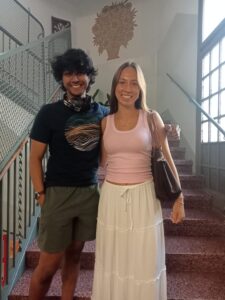
Howdy, I’m Somkar, an undergraduate senior studying business and preparing for medicine. I had always dreamed of studying abroad, and worked hard in the last three years to make it a reality. To me, it was a must to affirm that I could live across oceans on my own, gauge how well I could adapt to other societies, and get to know more of art and history that I adore. I hope to be a part of medical and diplomatic careers in the Hispanosphere; so, starting out in the motherland of the sphere’s culture was a natural place to start. I imagined that I would be able to advance my Spanish ability and gain a wider understanding of the diversity of Castilian, Andalusian, and Catalan culture. I always kept tabs on the news and studied about the nation before, but it was nothing like actually becoming a part of Barcelona.
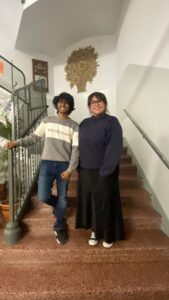
At the close of 2023, applying to study in Spain, I read a series of incendiary opinion pieces on El País. The debate of the nation’s education system reached new heights amid rising unemployment and inequality. Education tends to be lauded as the great mediator of these problems, but the Spanish system has become entrenched in the crossfire. As a student from abroad, I was insistent on making volunteering and cultural learning at the heart of my work. Perhaps I could help provide a different perspective of teaching, and learn just as much in the classrooms myself.
With that personal train of thought in mind, It was incredible to observe juxtapositions by volunteering at two separate schools, noting the disparities in doctrine and in how students see the world. I think that they have taught me more than I taught them.
Baixeras is a public school located on Barcelona’s Via Laietana, right in the heart of Barcelona. Baixeras was the first “graduated school” and was inaugurated in 1922. The school’s objective is to spark students’ interest, curiosity, and desire to learn about architecture, urban planning, and the surrounding history. They encourage students to ask questions like, “What is that?”, “Why is that?”, “What came before?”, “Can we go see?”, “Can we go inside?” This is their mission. SAI students regularly volunteer at this school.
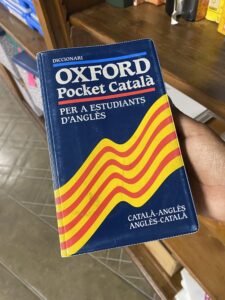
A Catalan-English dictionary
I adored the path of teaching in Escola Baixeras, where students are not taught through memorization alone, but rather through the experiences and inquiries they make. The experiences with the children are eye-opening, where they teach each other language and negotiate their own treaties to fights. Learning language with these systems provides a greater understanding of grammar and nuance in English. They can be a rowdier group of children, but they also know how to interact and mediate with each other, often in ways I would not expect.
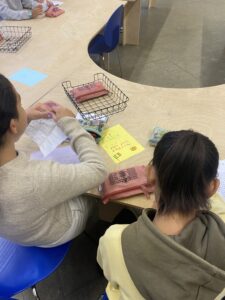
Baixeras pupils in class
At Baixeras, I have worked with second grade students in mathematics in the Spanish language and students’ leisure time. I have also assisted fifth and sixth grade students in learning English and in music teaching capacities. The sixth graders are intelligent, refined, and occasionally dramatic. They love debating over future romantic relationships with each other, and some are incredibly passionate about the world – playing map games and identifying flags immediately, while teaching each other that no, the flag of Texas is not the flag of Chile. They are wonderful artists, drawing posters for the school about how Halloween is celebrated globally.
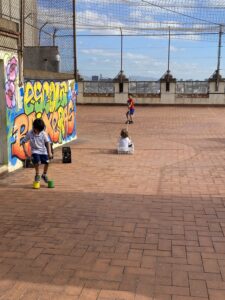
The school courtyard with children playing
The fifth graders are a more volatile bunch. Throwing shoes at each other and arguing over lunchtime treats, I would have to control chaos in ways the teachers could not – perhaps because the kids saw me as one of their own. Small shushes in groups with a smile, one on one talks in Spanish, keeping the peace by shoe confiscation while Maestra Carla was busy on the other side of the room. But they are so smart too: they could point out every city I put on a map for the UK, they debated over Trump and Biden in Spanish (when I assumed they wouldn’t know so deeply about politics), and they built their own little race cars using bottles and balloons.
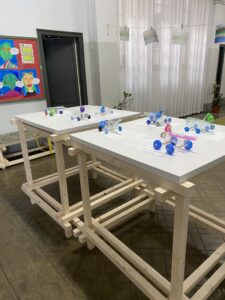
Small race cars made from bottles and balloons by the children
In personal skills, I feel like I have continued to hone my ability to work with children. But the real value has remained cultural and in the face of perspective. It’s easy to forget the simple rules of humanity until you see how children see the world: giving each other a piggyback to reach a ball stuck in a tree, or persevering – and succeeding – to fix a curtain even after I gave up trying. They think they can do anything, and if they fail, they try again. They speak honestly to each other. And they love speaking to new people. It’s been a fantastic experience to revitalize my life goal of giving service, and gives me confidence in my abilities for a potential role in Fulbright, working in Spanish and English together. It’s not hard to say that this has been my most important experiential work in study abroad – for learning the culture, advancing my language, and focusing on the people around me. I couldn’t ask for anything more.
Written by: Somkar, Fall 2024 Barcelona student from College of William and Mary
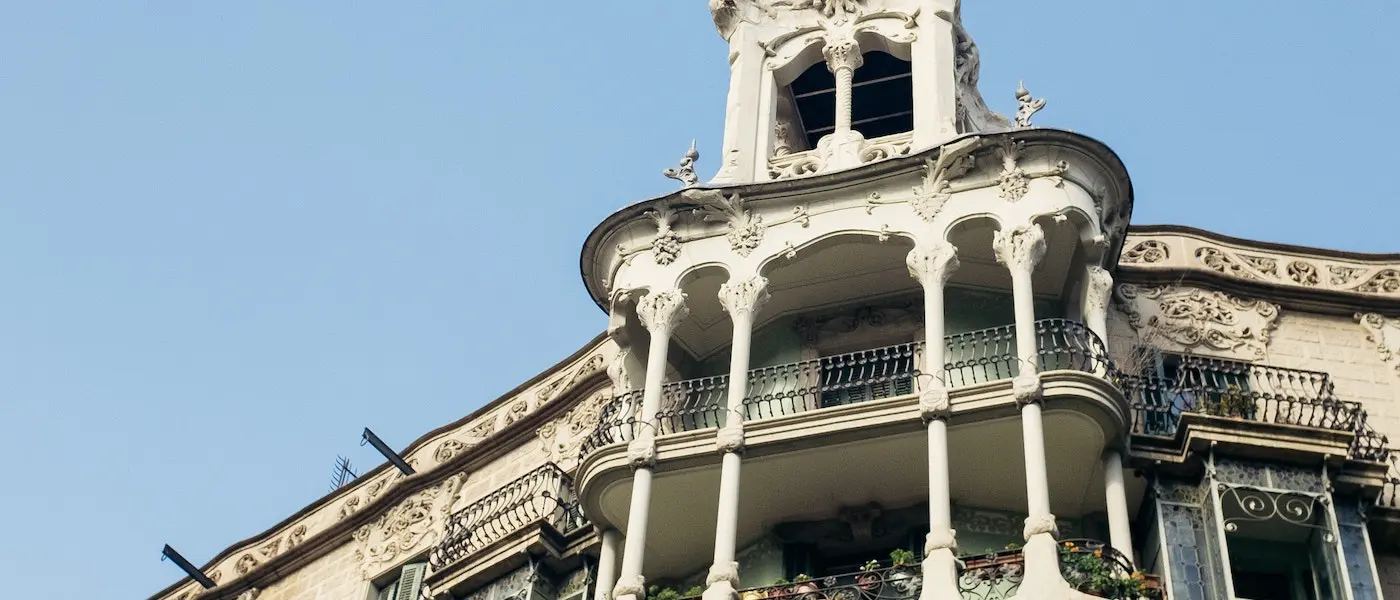

Comments
No comments yet